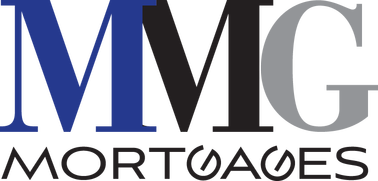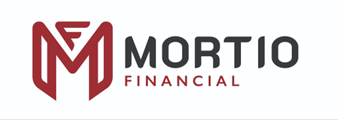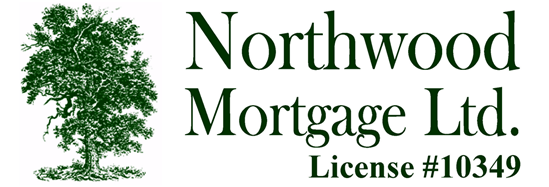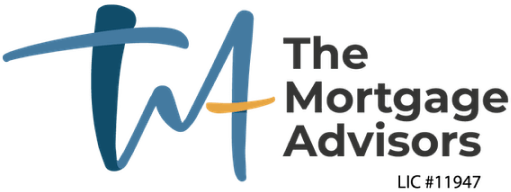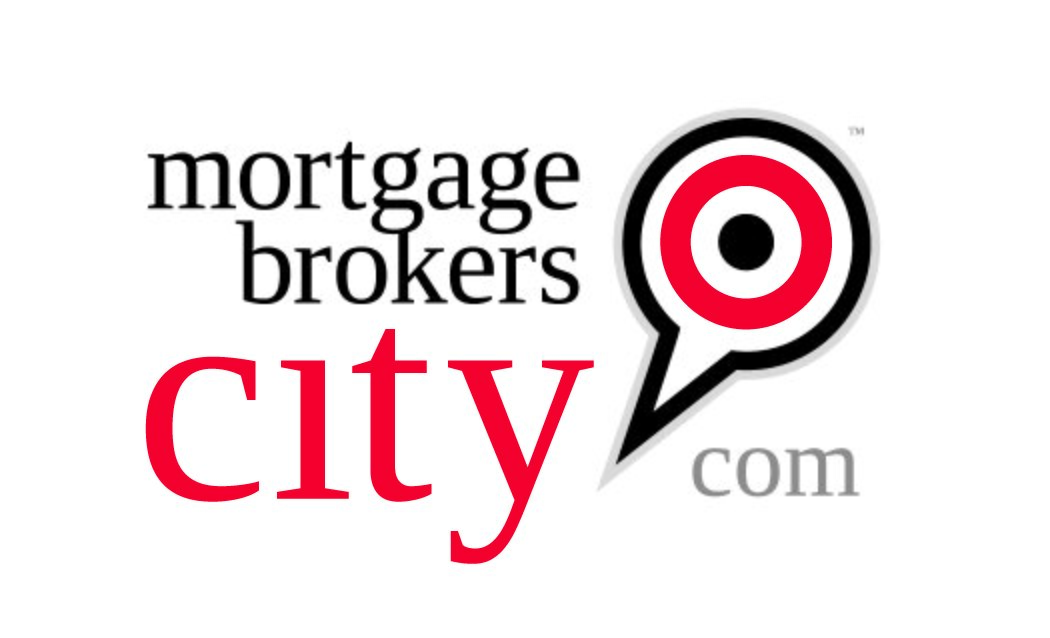Best Oakville Mortgage Rates
Compare Oakville mortgage interest rates from top lenders & save on your mortgage.
Today's Best Mortgage Rates in Oakville, Ontario
Evaluate Oakville’s best mortgage rates in one place. You can compare the most current mortgage rates and monthly payments from 175+ banks and lenders across Ontario.
Rates are based on an average mortgage of $500,000 and subject to change based on filter criteria.
| Lender
|
Insured
|
Insurable
|
Uninsured
|
|---|---|---|---|
|
MMG Mortgages
|
3.99%
$2,627.39 / month
|
4.19%
$2,681.85 / month
|
4.14%
$2,668.19 / month
|
|
Mortio Financial Corp
|
3.99%
$2,627.39 / month
|
4.24%
$2,695.56 / month
|
4.14%
$2,668.19 / month
|
|
Northwood Mortgage Ltd.
|
4.14%
$2,668.19 / month
|
4.24%
$2,695.56 / month
|
4.24%
$2,695.56 / month
|
|
Innovation Federal Credit Union
|
4.39%
$2,736.87 / month
|
4.39%
$2,736.87 / month
|
4.39%
$2,736.87 / month
|
|
True North Mortgage
|
2.99%
$2,363.66 / month
|
2.99%
$2,363.66 / month
|
2.99%
$2,363.66 / month
|
|
The Mortgage Advisors
|
3.87%
$2,594.98 / month
|
3.87%
$2,594.98 / month
|
3.87%
$2,594.98 / month
|
|
Nesto
|
3.91%
$2,605.76 / month
|
3.91%
$2,605.76 / month
|
3.91%
$2,605.76 / month
|
|
Hypotheca
|
3.94%
$2,613.86 / month
|
3.94%
$2,613.86 / month
|
3.94%
$2,613.86 / month
|
|
MortgagestoGo
|
3.94%
$2,613.86 / month
|
3.94%
$2,613.86 / month
|
3.94%
$2,613.86 / month
|
|
One Link Mortgage & Financial
|
3.95%
$2,616.57 / month
|
3.95%
$2,616.57 / month
|
3.95%
$2,616.57 / month
|
|
Sudbury Credit Union
|
3.99%
$2,627.39 / month
|
3.99%
$2,627.39 / month
|
3.99%
$2,627.39 / month
|
|
Monster Mortgage
|
3.99%
$2,627.39 / month
|
3.99%
$2,627.39 / month
|
3.99%
$2,627.39 / month
|
|
Northern Birch Credit Union
|
3.99%
$2,627.39 / month
|
3.99%
$2,627.39 / month
|
3.99%
$2,627.39 / month
|
|
The Police Credit Union
|
3.99%
$2,627.39 / month
|
3.99%
$2,627.39 / month
|
3.99%
$2,627.39 / month
|
|
City Wide Financial Corp
|
3.99%
$2,627.39 / month
|
3.99%
$2,627.39 / month
|
3.99%
$2,627.39 / month
|
|
Mainstreet Credit Union
|
3.99%
$2,627.39 / month
|
3.99%
$2,627.39 / month
|
3.99%
$2,627.39 / month
|
|
East Coast Mortgage Brokers
|
4%
$2,630.10 / month
|
4%
$2,630.10 / month
|
4%
$2,630.10 / month
|
|
Mortgage Brokers City Inc
|
4.04%
$2,640.95 / month
|
4.04%
$2,640.95 / month
|
4.04%
$2,640.95 / month
|
|
Prospera Credit Union
|
4.04%
$2,640.95 / month
|
4.04%
$2,640.95 / month
|
4.04%
$2,640.95 / month
|
|
First Credit Union
|
4.29%
$2,709.29 / month
|
4.29%
$2,709.29 / month
|
4.29%
$2,709.29 / month
|
|
First National Financial
|
4.34%
$2,723.07 / month
|
4.34%
$2,723.07 / month
|
4.34%
$2,723.07 / month
|
Today's Best Mortgage Rates in Oakville
Evaluate Oakville's best mortgage rates in one place. RATESDOTCAs Rate Matrix lets you compare pricing for all key mortgage types and terms.
Rates are based on an average mortgage of $500,000 and subject to change based on filter criteria.
Updated 06:11 on Jul 12, 2025| Placeholder |
Insured
The rates in this column apply to borrowers who have purchased mortgage default insurance.
This is required when you purchase a home with less than a 20% down payment.
The home must be owner-occupied and the amortization must be 25 years or less.
|
80% LTV
The rates in this column apply to mortgage amounts between 65.01% and 80% of the property value. The home must be owner-occupied and have an amortization of 25 years or less. You must have purchased it for less than $1 million. These rates are not available on refinances. Refinances require "Uninsured" rates.
|
65% LTV
The rates in this column apply to mortgage amounts that are 65% of the property value or less. The home must be owner-occupied and have an amortization of 25 years or less. You must have purchased it for less than $1 million. These rates are not available on refinances. Refinances require "Uninsured" rates.
|
Uninsured
The rates in this column apply to purchases over $1 million, refinances and amortizations over 25 years. More info on the differences between insured and uninsured rates.
|
Bank Rate
Bank Rate is the mortgage interest rate posted by the big banks in Canada.
|
|---|---|---|---|---|---|
| 1-year fixed rate | 4.99% | 4.79% | 4.79% | 5.59% |
5.49%
|
| 2-years fixed rate | 4.04% | 4.34% | 4.34% | 4.54% |
4.79%
|
| 3-years fixed rate | 3.87% | 4.09% | 4.09% | 4.24% |
4.29%
|
| 4-years fixed rate | 4.09% | 4.15% | 4.15% | 4.44% |
4.39%
|
| 5-years fixed rate | 3.91% | 3.89% | 3.89% | 3.91% |
4.09%
|
| 7-years fixed rate | 5.19% | 5.00% | 5.00% | 5.19% |
5.00%
|
| 10-years fixed rate | 5.24% | 5.24% | 5.24% | 5.29% |
6.09%
|
| 3-years variable rate | 4.40% | 4.30% | 4.30% | 4.40% |
6.35%
|
| 5-years variable rate | 4.04% | 4.04% | 4.04% | 4.05% |
4.25%
|
| HELOC rate | N/A | N/A | N/A | N/A |
N/A
|
| Stress Test | 5.25% | 5.25% | 5.25% | 5.25% |
N/A
|
Oakville’s housing market
Oakville, only 30 minutes from Toronto, is part of the Halton Region and sits on the shores of Lake Ontario. Much like other cities in the province, the housing market has been affected by increasing interest rates levied by the Bank of Canada in light of rising inflation.
According to the Oakville, Milton and District Real Estate Board all properties sales declined by 37.4% for single family homes and 29.2% for townhouses and condos compared to March 2022. Median sales price was down 8.4% percent to $1,530,000 for Single Family homes and 22.5% to $775,000 for townhouses and condos. Overall, the total number of new property listings decreased 51.3 percent for Single Family homes and 38.8 percent for townhomes or condos compared to this time last year.
The average sales price of Oakville’s Single Family homes declined by 15.70% from $2,429,192 in March 2022 to $2,048,958 in March 2023, year-over-year. Average sales price of condominiums declined by 14.40% from $1,189,771 in March 2022 to $1,018,684 in March 2023, year-over-year.
Even with higher rates and the rapid increase in inflation over the past year, there are incentives for first-time homebuyers that can help soften the financial burdens.
In Ontario, for example, first-time home buyers can get a break on land transfer tax refund by as much as $4,000. You can get the maximum Ontario land transfer tax refund amount if the home you are buying costs $368,000 or less.
The federal government also provides a First-Time Home Buyer Incentive. The program offers 5 or 10% of the home’s purchase price toward a down payment. The homebuyer must then repay the government either 5% or 10% of the property’s market value at the time of sale or at the 25-year mark.
Ontario’s mortgage market update
Canada has about $1.75 trillion in outstanding mortgages, with the average loan size over the last year being $363,654. The average loan amount across Canada decreased by 2% in Q3 2022 when compared to Q3 2021 likely because of a decrease in interest due to higher mortgage rates.
On the opposite side of that same coin, average monthly mortgage payments grew by 18% as rates went up.
In Ontario, the average scheduled monthly payment for new mortgage loan increased significantly in just a year. In Q2 2021 it was recorded at $1,847 which increased to $2,194 in Q2 2022.
According to CMHC’s Housing Market Outlook report, Ontario is expected to see large declines in 2023 housing starts, compared to other regions. This is discouraging, because it is among few provinces which have the largest housing markets like Toronto, Vancouver, BC, and Montréal, Quebec, which are already highly constrained in supply.
As per the report, the demand for existing homes will continue to slow in 2023, and sales will continue to decrease. The average house price should also decrease in 2023 compared to 2022.
High mortgage rates will continue to be the main reason for slowing demand. In addition, rising consumer spending has made it harder for households to save up to finance a home purchase. Despite this decline, prices will still be high, and affordability will remain an issue of concern.
Tips for first-time home buyers in Oakville, Ontario
Buying your first home might seem daunting with all the information that you'll have to consume in the process. We will make it earsier for you with some key points to keep in mind when starting your home buying journey.
Evaluate your costs
Purchasing a home is more than just the initial price of the house (as if that's not enough). You need to consider all the other costs associated with your purchase. Things like land-transfer tax, legal fees, inspectors, and appraisers will add up if you don't budget for them at the beginning of your journey.
That house will also require furniture, an alarm system, insurance, and a host of unforeseen costs that can affect your budget if you don't evaluate them early.
There's also the future to consider. How do you see your life or family changing in the next five or more years? Will your current house be sufficient for your needs, or will you need more (or less) space? These costs can add up as well if you don't plan ahead.
Seek pre-approval on your mortgage loan
Pre-approvals on your Oakville mortgage are a great way to lock in an interest rate for as much as 130 days in some cases, giving you a base from which to budget your costs. Its also a way to show sellers and agents you are a serious buyer, and in some cases, real estate agents like to see a pre-approval before they take you on as a client.
Think long-term
Needs change. You may be single and care-free today but expect to have a family down the road. Also, city living may seem exciting at first, but the quiet streets of suburbia may call you in the future. Or vice vera, you may have moved too far from your job or other family members and find the commute taxing.
Its not always easy to know what you will need in the long-term but considering your path today will make your homebuying experience smoother in the future.
Research homebuying incentives from the federal government
First-time homebuyers in Oakville have some good options when it comes to their purchase.
The federal government offers a First-Time Home Buyer Incentive. You will receive money for a down payment, anywhere between 5% or 10% of the home's purchase. However, the government giveth and the government taketh away. You still must repay the money when you sell the house or after 25 years. You might also trigger a repayment if you and a co-owner split up and one wants to buy out the other.
To qualify for this your household income must be no more than $120,000. You will also need a minimum down payment, which must be less than 20% of the home's total cost. Lastly, you can only buy a home with valuations that are at most four times your qualifying income; you can't exceed this ratio.
In Ontario, first-time home buyers can receive a land transfer tax refund of up to $4,000. You'll receive the maximum Ontario land transfer tax refund amount if the home you are purchasing is $368,000 or less.
Find a trustworthy team of professionals
Buying a home takes a village. You'll need a team of professionals to help you. It starts with your real estate agent legal team, mortgage specialist, inspectors, and more.
Because you are making one of, if not, the most expensive purchases of your life, you need to be able to trust all of your help. It not only saves you money down the road by avoiding costly mistakes, but it can also save you legal trouble as well. Do your due diligence when choosing your team and get referrals from trusted sources, if possible.

Oakville Life - Oakville Mortgage page
From a livability standpoint, Oakville, is a hub of culture, diversity and economic growth. Many prospective and experienced homeowners look to Oakville as a prime home-buying destination, and its easy to see why.
Its proximity to Toronto is a major plus. You can turn on the radio (or podcast) and enjoy just a 40-minute commute from Oakville to Toronto via the Queen Elizabeth Way (QEW). Alternatively, public transit will whisk you from city centre to city centre in about 35 minutes. The city is also just an hours drive to Niagara Falls and the U.S. border. Its no wonder many homeowners turn to Oakville to buy their home. Find the best Oakville mortgage rates by comparing offers today.
Frequently asked questions about mortgages in Oakville, Ontario
Find answers to all your Oakville mortgage related questions here...
How much can I save by comparing the current Oakville mortgage rates?
Oakville mortgage rates will reflect similar rates that financial institutions are offering within the province and country. Current rates are based on the Bank of Canada’s overnight lending rate to other financial institutions.
However, everyone’s situation is different. Using comparison sites like RATESDOTCA can help you save thousands of dollars by comparing the most current Oakville mortgage rates from the area’s top providers.
Why should I compare Oakville mortgage rates with RATESDOTCA?
With so many financial institutions and lenders competing for your mortgage business, it can be hard to decipher which rates will work for you.
RATESDOTCA synthesizes all that information in an easy to compare list of Oakville mortgage rate providers. You’ll see side-by-side comparisons from financial institutions such as TD Bank, National Bank, RBC, Scotiabank and more. It’s simple to use and free.
Are Oakville mortgage rates higher than other Ontario cities?
Generally, mortgage rates in Oakville should resemble the rates of other cities in the province. However, lenders will also look at individual things such as your income, the home you want to buy, the amount of financing you need and the location of the property. Oakville property values average more than $1.5 million, which is higher than the national average of about $686,000 and could also be a factor in lenders’ decision making.
What’s the difference between variable and fixed rate mortgages?
First time homebuyers have enough on their plates to consider when making their purchase. However, one of the most essential elements to consider is what kind of mortgage suits your income, lifestyle, tolerance, and budget. Essentially, you will be looking at two types of products: variable and fixed rate mortgages. It’s not a bad idea to talk to your lender or other trusted professionals about the pros and cons of each, although there is no right answer here. The best choice is the one that works best for you.
What’s the difference?
Variable Rate Mortgages
Variable rate mortgages fluctuate based on a bank’s prime rate which is influenced by the Bank of Canada overnight rates (the rate that is used for banks to charge interest to one another).
In these cases, your regular scheduled payments remain the same but the amount you pay in interest can fluctuate. While interest rates were at historic lows, variable rate mortgage holders were paying less than their fixed-rate cousins. As rates have climbed, that scenario has changed.
If you have an adjustable-rate mortgage, your monthly payments on your mortgage go up if the prime rate increases. Monthly payments will go down if the prime rate decreases.
Fixed Rate Mortgages
In fixed rate mortgages your interest rate will stay the same for the duration of the mortgage term. In many cases the five-year fixed rate is the most popular among homebuyers but there are three and 10-year options as well. Unlike variable rate mortgages, you have greater peace of mind knowing what the fixed cost is for the term of your mortgage. The lack of fluctuating rates can help you budget more efficiently.



